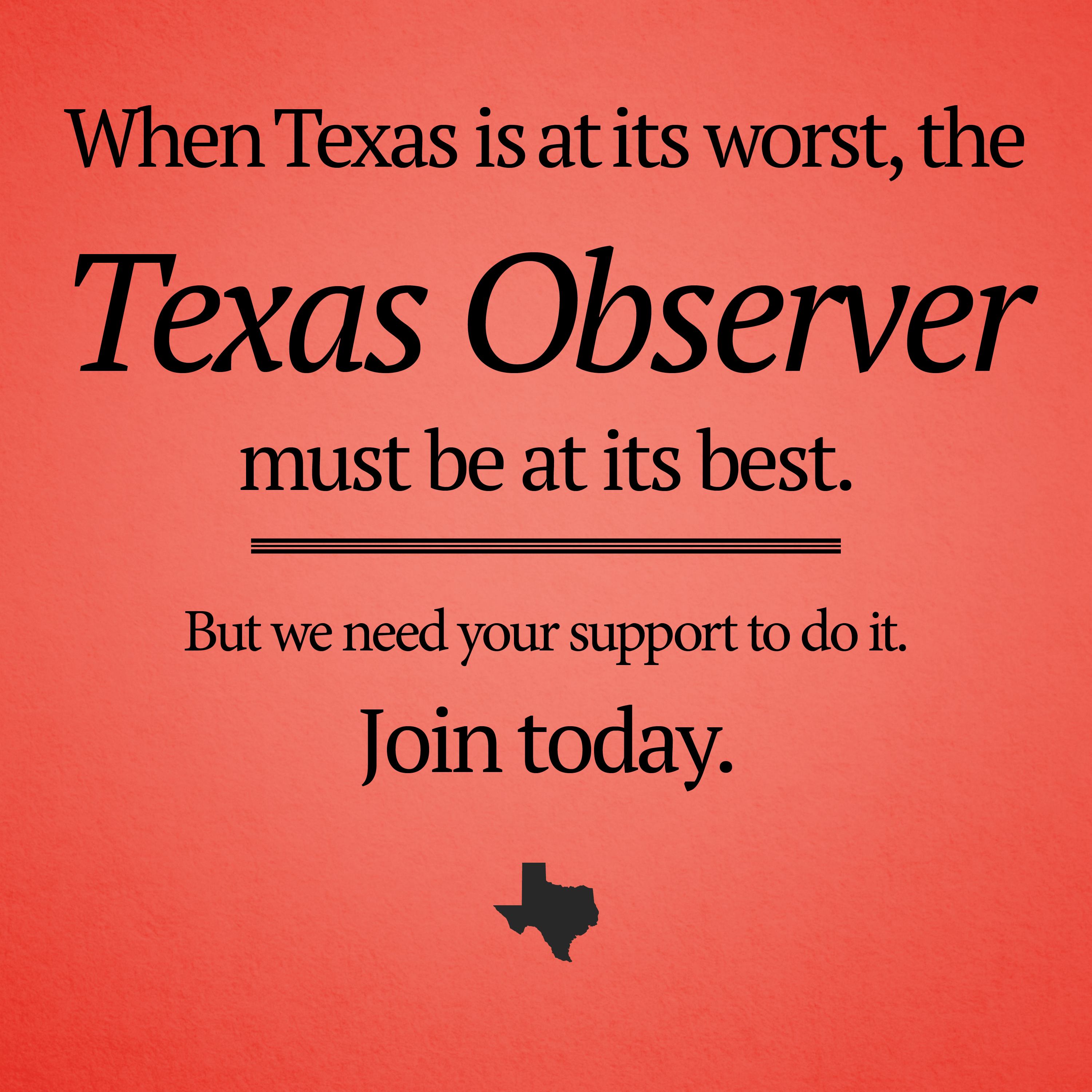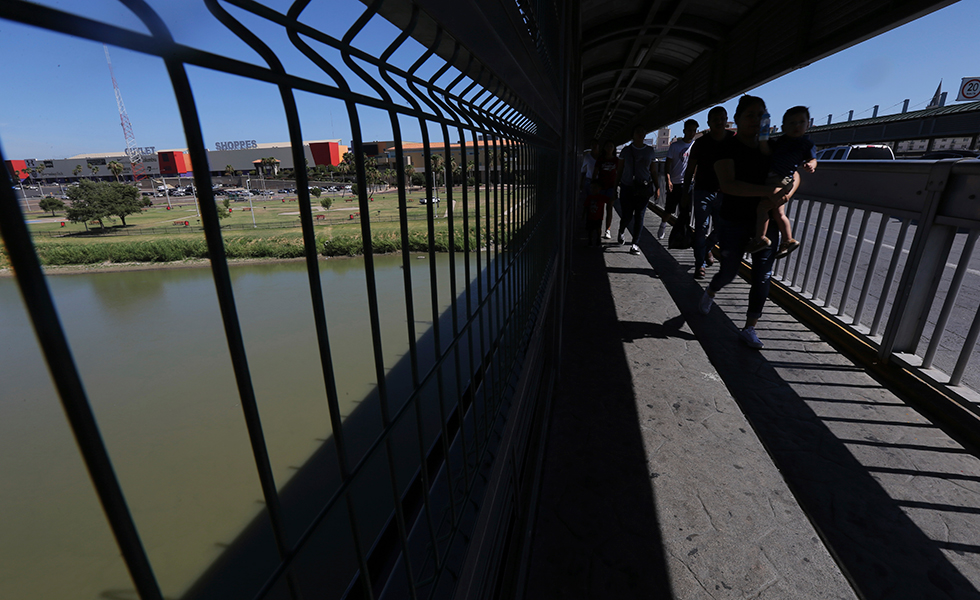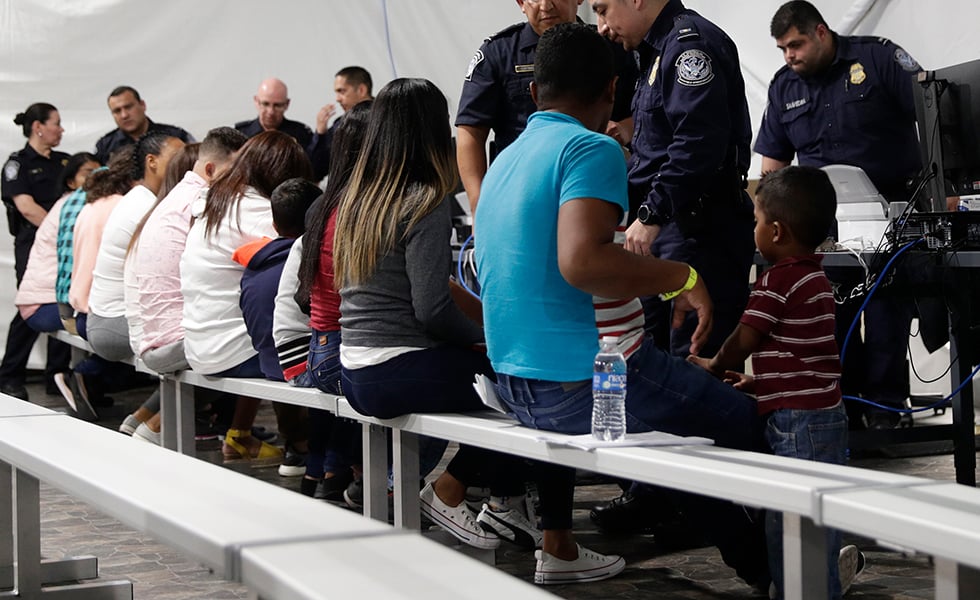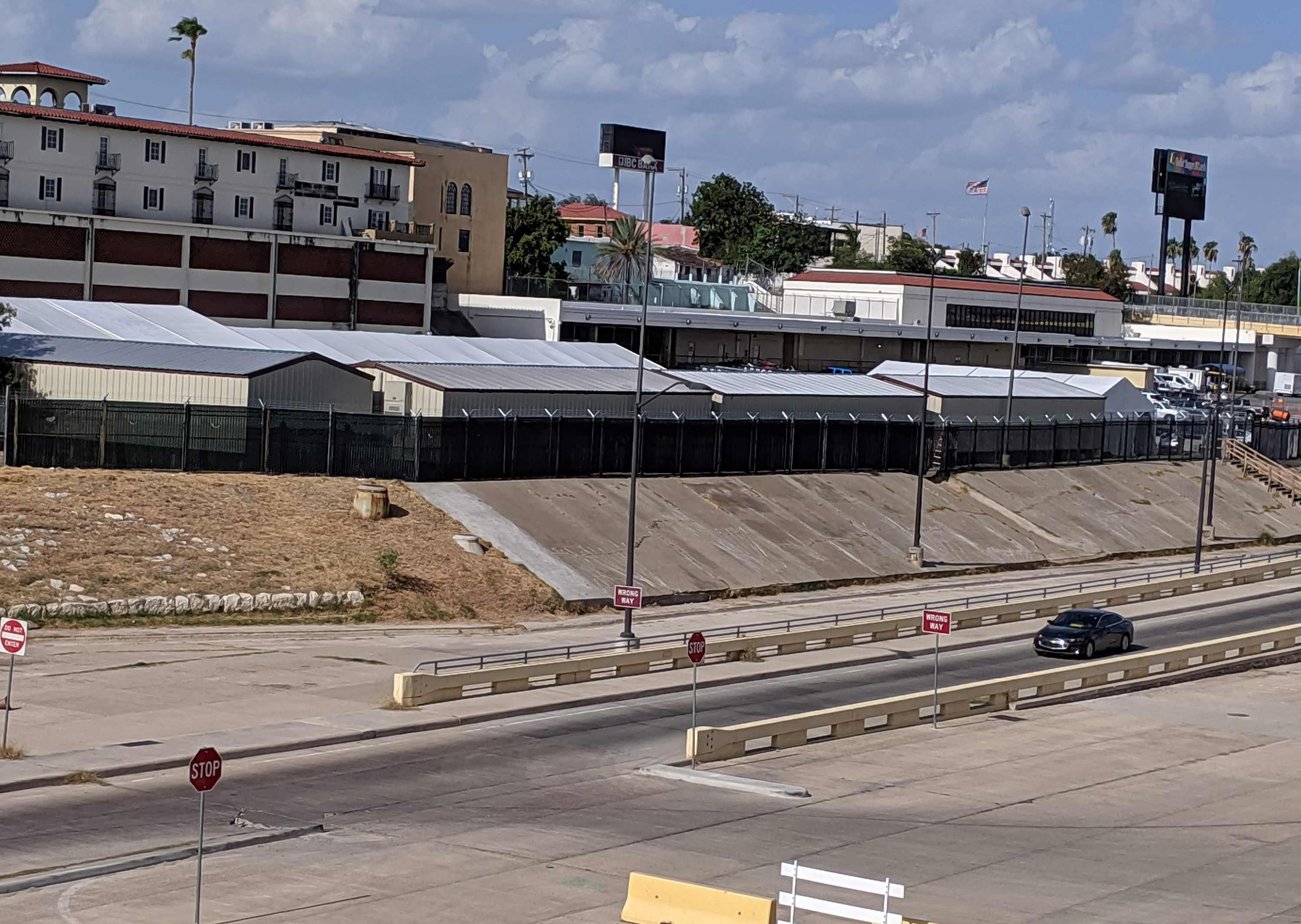
Tense Elections in Mexico and U.S. Endanger Democracy
Tense presidential elections could bring upheaval to both nations, according to a recent report.

Above: Former Mexico City mayor, and current presidential candidate Claudia Sheinbaum Pardo, shows her thumb after voting.
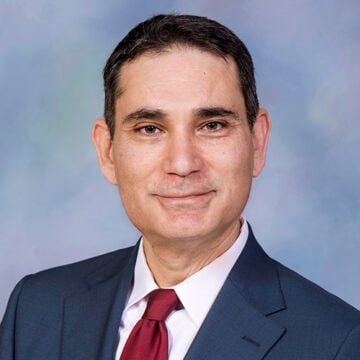
This year Mexico and the United States expect particularly tense presidential elections—and for the first time in decades, experts from both nations anticipate complaints of election fraud and potential violence at the polls. As former U.S. President Donald Trump did after losing office in 2020, Mexico’s incumbent president Andrés Manuel López Obrador has insisted he will not accept defeat for his hand-chosen successor, former Mexico City Mayor Claudia Sheinbaum Pardo, even though a broad coalition of opposition parties have joined together to support a popular alternative candidate, Senator Xóchitl Gálvez.
Tony Payan, director of the Center for the United States and Mexico, says he fears there will be violence and even politically motivated assassinations during the hard-fought elections south of the border. Payan, who is based at Rice University’s Baker Institute for Public Policy, provided Texas Observer Senior Editor Lise Olsen with insights into those races and other cross-border issues in 2024 from his center’s latest annual forecast.
Mexico seems poised to elect its first woman president, whether it’s former Mayor Sheinbaum or Senator Gálvez. Sheinbaum would pursue Lopez Obrador’s hands-off approaches to cartels and to allowing migrants from other countries cross Mexico unimpeded on their way to the United States. What would Gálvez do?
So far, neither candidate has made explicit proposals on their security strategy. But there are some hints as to how they would approach this. … Sheinbaum would stay the course of the López Obrador administration [and] continue the strategy of nonconfrontation with organized crime, something that has come to be known as “hugs, not bullets.” That would unfortunately continue allowing organized criminal groups to control vast territories and expand their illegal activities.

Gálvez, on the other hand, has hinted that the country needs to take on organized crime, without giving many specifics. We can assume, nonetheless, that she is likely to avoid an all-out confrontation with organized crime (in the style of ex-President Felipe Calderón). The best guess is that she would pursue a mixed strategy—a red spot strategy, deploying state forces to confront crime at the worst places, and quickly build the institutions required for this to be a broader strategy.
With López Obrador’s hands-off “abrazos no balazos” [hugs not bullets] policies, violence has grown in Mexico. Are the Mexican states that border Texas still among the most dangerous?
Organized crime has now extended its tentacles throughout Mexico. I do not think we can speak of the border states as the most dangerous, even though some remain extremely violent and crime-riddled, such as Tamaulipas and Sonora. Going down the list of the 32 states in Mexico, at least half of them are wracked by crime and violence at the highest levels we have seen in a century.
“Organized crime has now extended its tentacles throughout Mexico. … Going down the list of the 32 states in Mexico, at least half of them are wracked by crime and violence at the highest levels we have seen in a century.”
The U.S. and Mexico are far apart on how to confront organized crime that affects both countries, like human trafficking and fentanyl smuggling. The previous frameworks fell apart, and Washington and Mexico City have not found a way to deal with this joint problem. Texas has been left to respond on its own, but the current strategy—castigating border communities and businesses—is not likely to pay off. After years of Operation Lone Star and billions of dollars, we have yet to see any results on the real issues: drugs and immigration.
Your report estimates that illegal immigration through Mexico, based on López Obrador’s own statements, has reached 10,000 people a month, most of whom pay coyotes, thus generating something like $5 million or $6 million in illegal income for smugglers this year. Do you have any idea where most of this money is ending up?
Most of it is ending up in Mexico, but we cannot discard the fact that some of it comes back to the United States. There is some decent research on the way to show that money is laundered in Texas—and more of it is coming out. At a minimum, we know that most of the firepower of organized crime in Mexico comes from the United States. Someone is buying those guns and crossing them and thus someone is profiting in Texas. But dealing with the “gun rivers” that cross the border is not and is not likely to be a priority of the State of Texas, and deploying a serious strategy to ensure that Texas is not used to launder illicit money from Mexico is also not a priority.
Mexico’s economy is stable, yet it still relies heavily on remittances from the United States. How much of that money comes from Texans?
Remittances are approximately $60 billion a year now. They constitute a good percentage of Mexico’s GDP, perhaps as much as 4 to 4.5 percent. Texas is second only to California. Demographics and proximity are key here, in addition to a long history of immigration to both of these states. What is drawing attention now is why a state like Minnesota, which has very few migrants from Mexico, has shot up to be in third place. There are some suspicions that the remittances system is being used by organized crime to repatriate some of their cash without drawing attention. That will become a larger issue as time goes by.
Mexico ended its universal healthcare coverage system under López Obrador, despite the health demands posed by a worldwide pandemic. What else has changed?
Mexico is underinvesting in education, healthcare, infrastructure, etc. In the name of fighting corruption, López Obrador has decimated the healthcare system and thrown tens of millions of Mexicans off the government insurance program that had been put in place by the previous three administrations.
“In the name of fighting corruption, López Obrador has decimated the healthcare system and thrown tens of millions of Mexicans off the government insurance program.“
Although López Obrador claims to dislike “neoliberalism,” his strategy of dismantling the healthcare system and sending people to find care in the private sector has effectively privatized the system and made it more difficult for people to afford it.
A lot of comparisons have been made between the populist styles of López Obrador, who founded his own party known as MORENA, and ex-president Trump, who is the Republican front-runner. The risk of instability seems very real in Mexico’s June presidential elections and the U.S. elections in November, given that Trump and López Obrador continue to be popular and to question election integrity. What are you predicting?
This will likely be a year of high political violence in Mexico. Candidates have already been killed and others are being intimidated by organized crime. Clearly, criminal organizations have discovered that they have political interests—and that these align with MORENA. So, they will do anything they can to throw support in the direction of that party’s candidates and reduce the probability of victory for opposition candidates. That may involve deadly violence.
Unfortunately, it is hard to find a coherent strategy by Washington toward Mexico. Washington is right now focused on one thing: ensuring that Mexico cooperates with the U.S. on irregular and disorderly immigration, which continues to dog the Biden administration going into the 2024 election. Trump knows that, and this issue will play prominently in the campaign.
